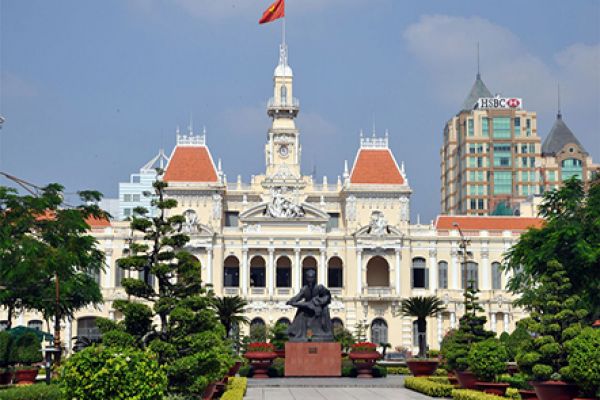
The MPI estimates Vietnam’s GDP growth in 2013 at 5.5 percent, with total export turnover rising 10 percent over 2012 to US$124.3 billion. Budget overspending will stay at around 4.8 percent of total GDP, while the consumer price index (CPI) growth will be kept at 7-8 percent.
High growth beyond reach
Dr. Tran Dinh Thien, Director of the Vietnam Institute of Economics, says that the country should set a realistic target of GDP growth in 2013 at 4-4.5 percent.
 |
Judging by the effectiveness of public investment in some construction projects, Dr. Thien says it seems difficult to maintain the same level of investment as in 2012.
In his opinion, the national economy is facing an imbalance between supply and demand and, no doubt, public investment will more often than not go against the Government’s goal of stabilizing macroeconomy.
Regarding economic growth in recent months, Dr. Thien says the rising credit debt ratio has led to economic slowdown when the flow of capital is hard to come by.
He argues that most economies in the world will experience a low economic growth in 2013, and find it increasingly difficult to gain momentum.
According to the International Monetary Fund (IMF)’s forecast, the world economy will likely face crunch time in 2015, even more risks until 2017 and, of course, Vietnam will be affected by global market fluctuations. So, it is impossible to iron out snags in the national economy as early as expected.
Top priority to marcoeconomic stabilization
Dr. Thien suggests Vietnam should concentrate on stabilizing its macroeconomy and curbing inflation by mobilizing all available sources to settle bad debts and reduce inventory levels.
Regarding the MPI’s plan to keep budget overspending at 4.8 percent of total GDP, economist Vo Tri Thanh says that won’t be easy at all as the total budget collection in the past nine months of 2012 accounted for less than three-quarters of the set target for the whole year.
Dr. Thanh says restructuring the banking system and settling bad debts will remain too challenging a task to be fulfilled in the next three or four years.
Dr. Nguyen Dinh Chung, Deputy Head of the Central Institute for Economic Management (CIEM), is also worried about the risk of budget overspending. He says the government would rather make good planning for capital allocation than mobilize capital sources for inefficient projects.
Dr. Thanh agrees that all rescue efforts will be to no avail unless business operations are restructured properly.
VOV online










(84-63) 3 826042 – (84-63) 3 511142
No 54 Nguyen Dinh Chieu, Ham Tien Central Mui Ne Beach Binh Thuan Vietnam
523 To Hien Thanh District 10 Ho Chi Minh City Vietnam
Ha Long Halong City Quang Ninh Vietnam
A13 Hung Thong 2 Halong City Quang Ninh Vietnam




